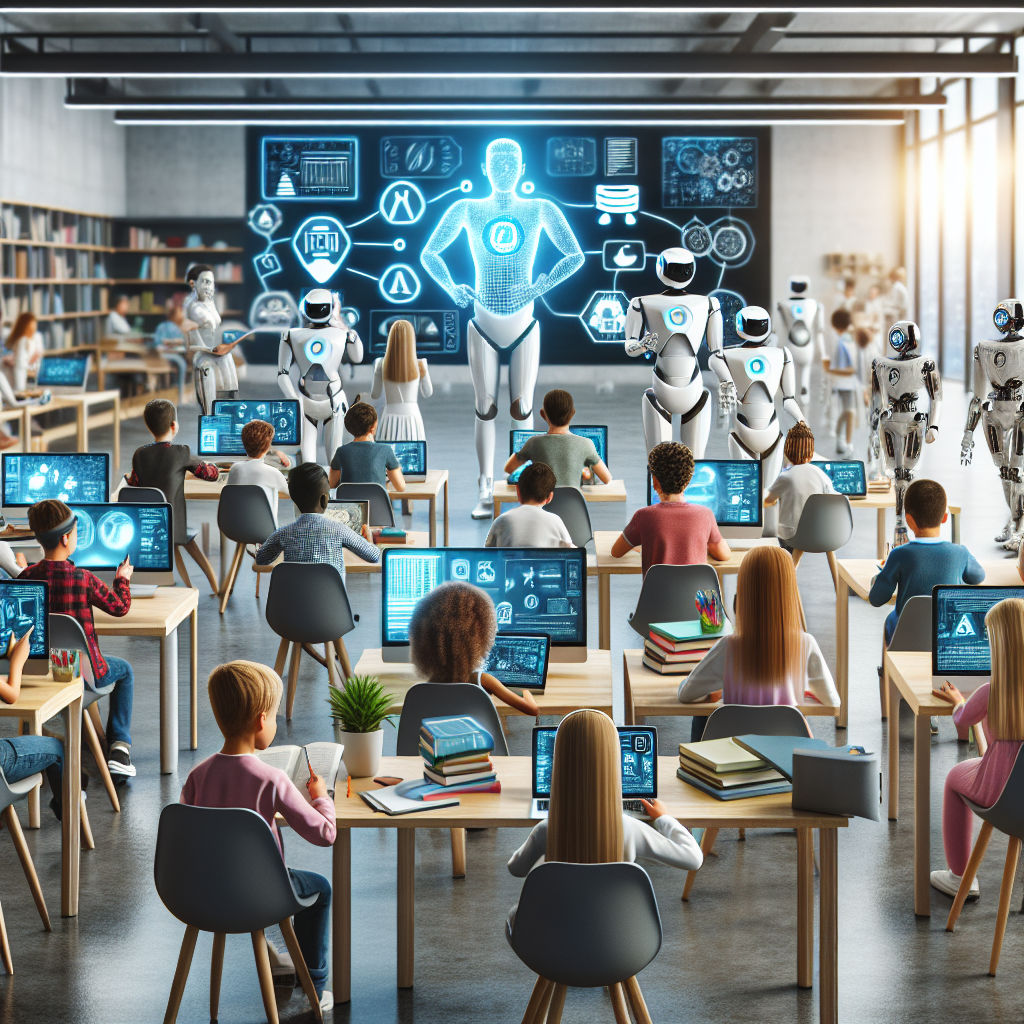Artificial Intelligence (AI) has been making significant strides in revolutionizing various industries, and education is no exception. With the rapid advancement of technology, AI has the potential to transform the way students learn, teachers teach, and educational institutions operate. By harnessing the power of AI, educators can create personalized learning experiences, improve learning outcomes, and enhance overall teaching efficiency.
Improving Learning Outcomes
One of the key benefits of integrating AI into education is its ability to improve learning outcomes. AI-powered tools can analyze student data and provide personalized recommendations based on individual learning styles and preferences. This enables educators to tailor their teaching methods to meet the unique needs of each student, ultimately leading to better retention and understanding of the material.
AI can also help identify areas where students may be struggling and provide targeted interventions to address these challenges. By analyzing data on student performance, AI algorithms can pinpoint specific areas of weakness and suggest additional resources or exercises to help students improve their understanding.
Additionally, AI can facilitate real-time feedback, allowing students to receive immediate responses to their work and assessments. This instant feedback loop can help students track their progress, identify areas for improvement, and make adjustments in real-time. This not only improves learning outcomes but also fosters a sense of autonomy and self-regulation in students.
Personalized Instruction
Another major advantage of AI in education is its ability to deliver personalized instruction. AI-powered learning platforms can adapt to the individual needs of each student, providing customized learning pathways and resources that cater to their specific strengths and weaknesses.
For example, AI algorithms can analyze student performance data to create personalized learning plans that align with each student’s learning goals and objectives. These plans can include targeted exercises, activities, and assessments that are tailored to the student’s unique learning style and pace.
Furthermore, AI can also facilitate adaptive learning, where the difficulty level of the material adjusts in real-time based on the student’s performance. This ensures that students are constantly challenged at an appropriate level and are not overwhelmed by material that is too advanced or bored by material that is too easy.
By providing personalized instruction, AI can help students progress at their own pace, build confidence in their abilities, and ultimately achieve better learning outcomes. This individualized approach to education can also help students stay engaged and motivated, leading to higher levels of academic success.
Enhancing Teaching Efficiency
In addition to improving learning outcomes and providing personalized instruction, AI can also enhance teaching efficiency. By automating routine tasks such as grading, lesson planning, and assessment, educators can free up more time to focus on teaching and interacting with students.
AI-powered tools can streamline administrative processes, such as grading multiple-choice exams or essays, allowing teachers to provide more timely and detailed feedback to students. This not only saves time but also improves the quality of feedback, leading to better student outcomes.
Furthermore, AI can assist educators in creating engaging and interactive learning materials that cater to diverse learning styles. By leveraging AI technologies such as virtual reality, augmented reality, and gamification, teachers can create immersive and interactive learning experiences that captivate students’ attention and enhance their understanding of complex concepts.
FAQs
Q: How can AI help students with special needs or learning disabilities?
A: AI can provide personalized learning experiences for students with special needs or learning disabilities by adapting the material to meet their specific requirements. AI-powered tools can offer additional support, resources, and accommodations to help students overcome their challenges and succeed academically.
Q: Is AI replacing teachers in the classroom?
A: AI is not meant to replace teachers but rather to augment their capabilities and enhance the learning experience. While AI can automate certain tasks and provide personalized instruction, the role of teachers in guiding, mentoring, and inspiring students remains essential.
Q: How can educators ensure the ethical use of AI in education?
A: Educators must be mindful of the ethical implications of using AI in education and ensure that it is used responsibly and transparently. This includes safeguarding student data, ensuring equity and fairness in AI algorithms, and promoting digital literacy and critical thinking skills among students.
Q: What are some potential challenges of integrating AI into education?
A: Some potential challenges of integrating AI into education include the risk of data privacy breaches, the need for ongoing training and professional development for educators, and the potential for AI bias or discrimination in algorithms. It is essential for educators to be aware of these challenges and address them proactively to ensure the successful integration of AI in education.
In conclusion, AI has the potential to revolutionize education by improving learning outcomes, providing personalized instruction, and enhancing teaching efficiency. By harnessing the power of AI, educators can create engaging and adaptive learning experiences that cater to the diverse needs of students and prepare them for success in an increasingly digital world. As AI continues to evolve and advance, the possibilities for its impact on education are endless, promising a brighter future for learners of all ages and backgrounds.

